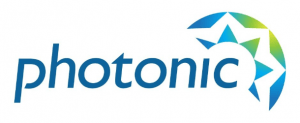
By Sandra Helsel posted 31 May 2024
IQT News Briefs May 31:
Photonic demonstrates distributed entanglement between modules, marking significant milestone toward scalable quantum computing and networking
 Photonic Inc., a leader in distributed quantum computing in silicon, today announced a significant milestone on the path to commercially relevant quantum systems. While many existing quantum architectures achieve entanglement within modules, Photonic has demonstrated entanglement between modules. In this way, Photonic’s architecture provides a unique solution to one of the primary challenges on the road to large-scale quantum adoption—scalable entanglement distribution—and literally goes “outside the box” to open avenues for transformative applications in fields such as materials science and drug discovery.
Photonic Inc., a leader in distributed quantum computing in silicon, today announced a significant milestone on the path to commercially relevant quantum systems. While many existing quantum architectures achieve entanglement within modules, Photonic has demonstrated entanglement between modules. In this way, Photonic’s architecture provides a unique solution to one of the primary challenges on the road to large-scale quantum adoption—scalable entanglement distribution—and literally goes “outside the box” to open avenues for transformative applications in fields such as materials science and drug discovery.
Photonic’s approach is based on optically-linked silicon spin qubits with a native telecom networking interface, meaning that it can integrate with the infrastructure, platforms, and scale of today’s global telecommunications networks, including the Microsoft Azure cloud.
Photonic CEO, Dr. Paul Terry will give the keynote at IQT Vancouver/Pacific Rim in Vancouver, Canada June 4-6, 2024. The keynote is:”Theoretical, Possible, Inevitable: The Evolution of Distributed Quantum Computing with Photonic”.
Photonic a Diamond sponsor at IQTVancouver/Pacific Rim June 4-6
Singapore Invests $222M in National Quantum Strategy to Lead Quantum Tech Development
Singapore has announced an investment of close to S$300 million (~US$222 million) into its National Quantum Strategy (NQS) to advance the growing quantum industry. This initiative, outlined by Deputy Prime Minister Heng Swee Keat, who also serves as Chairman of the National Research Foundation (NRF), aims to strengthen Singapore’s position as a leading hub in the development and deployment of quantum technologies over the next five years.
The NQS will focus on four funding initiatives:
- The Centre for Quantum Technologies (CQT), a research centre of excellence hosted by the National University of Singapore, will be elevated to a flagship national research centre.
- New National Quantum Sensor Programme established under Quantum Engineering Programme 3.0 (QEP 3.0), while existing national-level quantum programmes will enhance their current suite of capabilities to meet industry needs.
- New National Quantum Processor Initiative (NQPI) set up to enable Singapore to design and build its own practical quantum processor.
- The National Quantum Scholarships Scheme (NQSS) will be launched to develop Singapore’s talent pipeline in quantum research & development (R&D).
NXP, eleQtron and ParityQC Reveal their First Quantum Computing Demonstrator for the DLR Quantum Computing Initiative
 NXP Semiconductors N.V. (NASDAQ: NXPI), eleQtron and ParityQC, working together in the QSea consortium of the DLR Quantum Computing Initiative (DLR QCI), revealed on May 30 the first full-stack, ion-trap based quantum computer demonstrator made entirely in Germany. The new quantum computer demonstrator is located in Hamburg, further strengthening the city’s role as an important technology and research location in Germany.
NXP Semiconductors N.V. (NASDAQ: NXPI), eleQtron and ParityQC, working together in the QSea consortium of the DLR Quantum Computing Initiative (DLR QCI), revealed on May 30 the first full-stack, ion-trap based quantum computer demonstrator made entirely in Germany. The new quantum computer demonstrator is located in Hamburg, further strengthening the city’s role as an important technology and research location in Germany.
A broader understanding of the capabilities of quantum computing is required for this technology to be effective in solving complex challenges. The DLR QCI aims to build the necessary skills by creating a quantum computing ecosystem in which economy, industry and science cooperate closely to fully leverage the potential of this groundbreaking technology.
In Other News: Forbes Council Member Sinha asks “Are We Ready for Post Quantum Computing?”

Dr. Amit Sinha is CEO of DigiCert, and Forbes Council Member explained what businesses need to understand about Post Quantum Computing in his May 30 Forbes article. The discussion is detailed and summarized here:
The fall of traditional encryption won’t come as a surprise, but the clock is ticking. Estimates for viable quantum computers capable of breaking current encryption range widely but could be as soon as 2030. Too many organizations are still behind where they should be in safeguarding their digital assets and transactions.
1) The cryptography most vulnerable to quantum computers—specifically, the algorithms underpinning public key infrastructure (PKI) frameworks—is used practically everywhere.
2) Security experts are well aware of the looming PQC threat, and they’re taking steps to mitigate it. In August 2023, the U.S. National Institute of Standards and Technology (NIST) provided draft standards for new “quantum-resistant” cryptographic algorithms. In 2023, The Signal Technology Foundation, which provides end-to-end encryption for billions of users of WhatsApp, Google and Signal messaging platforms, augmented existing encryption with the NIST-approved CRYSTALS-Kyber algorithm for PQC encryption and key exchange.
Sinha concludes, “By taking steps to strengthen cryptographic approaches today, we can ensure we’re ready when it arrives.”
- SEO Powered Content & PR Distribution. Get Amplified Today.
- PlatoData.Network Vertical Generative Ai. Empower Yourself. Access Here.
- PlatoAiStream. Web3 Intelligence. Knowledge Amplified. Access Here.
- PlatoESG. Carbon, CleanTech, Energy, Environment, Solar, Waste Management. Access Here.
- PlatoHealth. Biotech and Clinical Trials Intelligence. Access Here.
- Source: https://www.insidequantumtechnology.com/news-archive/iqt-news-briefs-may-31-photonic-demonstrates-distributed-entanglement-between-modules-marking-significant-milestone-toward-scalable-quantum-computing-networking-singapore-invests-222m-i/




